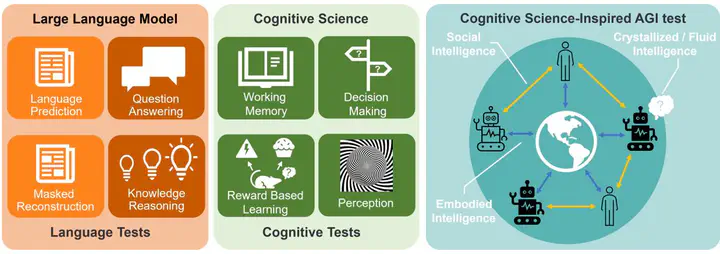Integration of cognitive tasks into artificial general intelligence test for large models

Abstract
During the evolution of large models, performance evaluation is necessarily performed on the intermediate models to assess their capabilities, and on the well-trained model to ensure safety before practical application. However, current model evaluations mainly rely on specific tasks and datasets, lacking a united framework for assessing the multidimensional intelligence of large models. In this perspective, we advocate for a comprehensive framework of artificial general intelligence (AGI) test, aimed at fulfilling the testing needs of large language models and multi-modal large models with enhanced capabilities. The AGI test framework bridges cognitive science and natural language processing to encompass the full spectrum of intelligence facets, including crystallized intelligence, a reflection of amassed knowledge and experience; fluid intelligence, characterized by problem-solving and adaptive reasoning; social intelligence, signifying comprehension and adaptation within multifaceted social scenarios; and embodied intelligence, denoting the ability to interact with its physical environment. To assess the multidimensional intelligence of large models, the AGI test consists of a battery of well-designed cognitive tests adopted from human intelligence tests, and then naturally encapsulates into an immersive virtual community. We propose that the complexity of AGI testing tasks should increase commensurate with the advancements in large models. We underscore the necessity for the interpretation of test results to avoid false negatives and false positives. We believe that cognitive science-inspired AGI tests will effectively guide the targeted improvement of large models in specific dimensions of intelligence and accelerate the integration of large models into human society.